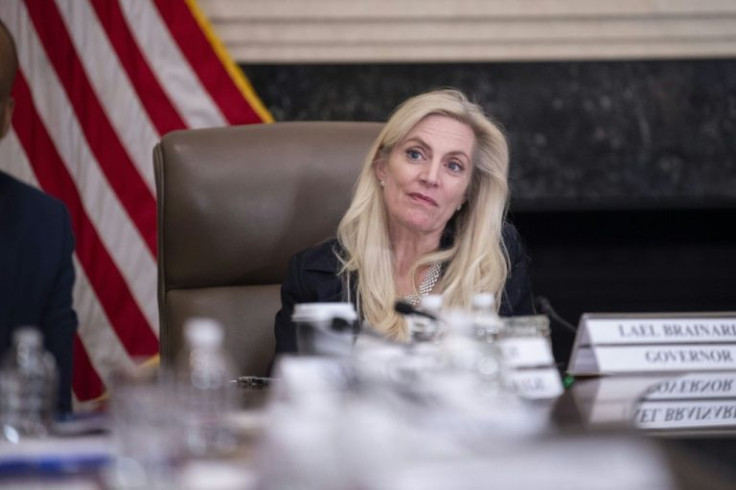Democrat Lael Brainard Picked As Fed Chief's Right-hand Woman
Lael Brainard, nominated Monday by President Joe Biden to serve as vice chair of the US Federal Reserve, advocates for regulating the financial system, addressing climate risks and fighting economic inequality.
A fellow member of the president's Democratic Party who is known as a skillful negotiator and specialist in international trade, Brainard was a favorite of the party's progressive wing to take over as central bank chair from Jerome Powell.
Biden nominated Powell for a second term and tapped Brainard to be his new deputy at the world's most influential central bank, replacing Republican Richard Clarida. Both positions require approval by the US Senate.
A central bank governor since she was appointed to the Fed Board of Governors in 2014 by then-president Barack Obama, Brainard has been the sole Democrat on the body for the last three years.
She has "a lot of knowledge, research (and) experience in global economic affairs," Don Kohn, a former Fed governor and monetary policy expert at the Brookings Institution think tank, told AFP in an interview.
Prior to joining the Fed, Brainard worked in Obama's Treasury Department as under-secretary for international affairs.
In that role, she negotiated with China over charges that Beijing manipulated its currency, but Brainard was criticized by centrist Democrats who wanted her to take a more hard-line stance.
Observers have taken notice of her work on sensitive issues like banking sector deregulation, where Brainard has pushed back against efforts to ease up on oversight in the sector.
Brainard, 59, with long blond hair and an impeccable smile, was born in what was then West Germany and spent part of her childhood in communist Poland.

The Harvard University graduate advised Democratic president Bill Clinton during the G7 and G8 summits in the 1990s before founding a program addressing economics and international development at Brookings.
A mother of three daughters, Brainard is married to Kurt Campbell, whom Biden appointed as a top official dealing with Asia.
While working for Obama, Brainard was criticized for not doing enough to tackle environmental concerns.
She has apparently taken the criticism to heart: in November 2020, she gave a speech on "important risks" to financial stability caused by climate change, and at her urging the Fed began assessing those risks in its biannual report on the subject.
"She has been a consistent voice on the regulatory side, worried about financial stability issues and pushing back to some extent against the deregulatory bent of" former Republican president Donald Trump's appointees, Kohn said.
"Another point she has made in her speeches is how beneficial it is to have a strong economy that can bring people in, who have been left behind or at the bottom of the pay scale, or who have dropped out of the labor force."
Brainard initially was viewed as a potential pick for Biden's Treasury secretary, but was ultimately passed over in favor of Janet Yellen, a former Fed chair and the first woman to serve in that role.
Biden has three other open positions on the Fed board to appoint, including that of vice chair for supervision, the top banking cop.
The president will make those nominations known by early December and "is committed to improving the diversity in the Board's composition," the White House said.
© Copyright AFP {{Year}}. All rights reserved.





















